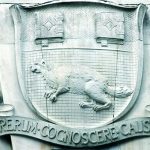London School of Economics and Political Science (LSE)

The London School of Economics and Political Science (LSE) was founded in 1895 by Beatrice and Sidney Webb, Graham Wallas and George Bernard Shaw, members of the Fabian Society. The aim of the School was to better society by analysing inequalities and studying the root causes of poverty.
Many distinguished academics were drawn by the School’s mission and contributed with their teaching and research, amongst whom where Nobel prize-winning philosopher Bertrand Russell, pioneering statistician Sir Arthur Bowley and H.J. Mackinder, one of the founding fathers of geopolitics. Since its inauguration, a total of 18 Nobel Prize winners in economics, peace and literature and 37 world leaders have been either LSE staff or students.
In 1922, the School chose its coat of arms which reflects its guiding principles. It includes the motto "rerum cognoscere causas" ("to know the causes of things"), a quotation from Virgil Georgics, and the beaver emblem, a reference to industry. The red logo was adopted in the early 2000s.
Today, the LSE is a truly international destination. It is home to around 9,600 full time students from 140 countries and staff of just over 3,300, 44% of which comes from outside the UK. With 220 research centres and a great variety of undergraduate and postgraduate programmes, the School has established itself as a top university in all major international university league table rankings.
Among its most prominent initiatives is the LSE European Institute, established in 1991 and dedicated to the interdisciplinary study of the processes of integration and fragmentation within Europe. The strong public profile of the institute has made the LSE one the leading platforms for informed public discussion about the identity of Europe and the many policy challenges confronting the European Union and its member states.
For more information, please visit the London School of Economics’ website.
* The LSE has also created a dedicated website with FAQs and all the latest information on Brexit to keep prospect and current students, as well as staff and alumni, informed on what this means for the university.

